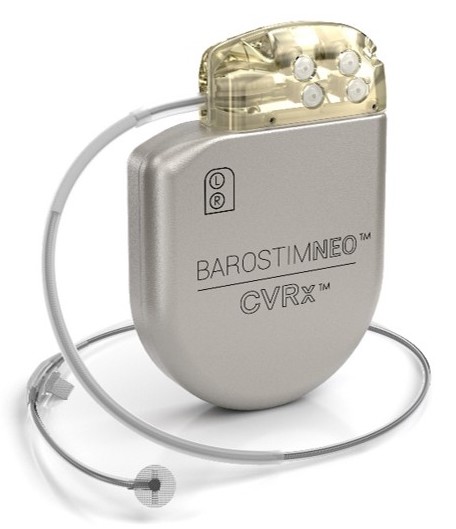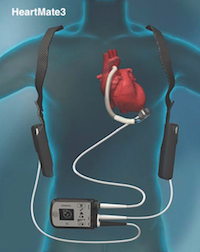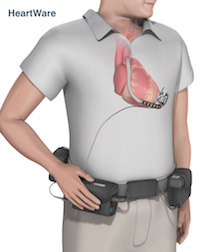Specialized Care to Improve Blood Flow

Heart failure is a condition in which the heart is not able to pump blood effectively to support the needs of the body. It has multiple stages during which patients may progress from having no symptoms to developing worsening symptoms due to the progression of their condition. Advanced heart failure is a late stage of heart failure where standard therapies are not effective any longer.
Schedule an Appointment
For more information or to schedule an appointment, please call 202-715-5700.
Patients with advanced heart failure experience worsening of their symptoms including:
- Reduced ability to perform tasks of daily living
- Fatigue
- Shortness of breath
- Inability to keep focus
- Recurrent hospitalization for heart failure
- Intolerance to their medications
When a patient reaches this stage there are several treatment options available to them based on their condition and needs.
GW Hospital offers comprehensive care and services for patients with advanced heart failure. Specialized treatment is needed when standard treatments no longer work and the patient's heart failure keeps getting worse.
Heart Failure Causes, Symptoms and Treatments
Our services are tailored to the individual needs of the patient, and we use a multidisciplinary approach involving clinicians, care providers, social workers, financial coordinators, home health workers, pharmacists and palliative care providers. We offer an array of therapeutic options including Barostim™ Baroreflex Activation Therapy, temporary and long-term mechanical support, home inotropes and evaluation for cardiac transplant in partnership with transplant centers. GW Hospital provides the latest technology in left ventricular assist devices (LVADs) including HeartMate 3™ and HeartWare™. We also utilize home monitoring systems for care and anticoagulation.
The Mechanical Circulatory Support Program at GW Hospital is one of only two programs in Washington D.C. offering this advanced care option for heart failure patients. We also offer a broad range of temporary pumps for those in need for short term support. Our central location provides increased access to the latest and most sophisticated therapies for a large population in the greater DMV area.
Procedures and Devices
Barostim™ Baroreflex Activation Therapy
 GW Hospital was the first in the region to successfully implant the Barostim Baroreflex Activation Therapy, the world’s first FDA-approved heart failure (HF) device to use neuromodulation – the power of the brain and nervous system – to improve the symptoms of patients with systolic heart failure. This advanced, award-winning therapy was designed to treat HF patients who have had little to no success with other proven treatment options.
GW Hospital was the first in the region to successfully implant the Barostim Baroreflex Activation Therapy, the world’s first FDA-approved heart failure (HF) device to use neuromodulation – the power of the brain and nervous system – to improve the symptoms of patients with systolic heart failure. This advanced, award-winning therapy was designed to treat HF patients who have had little to no success with other proven treatment options.
Unlike other HF treatment options, Barostim does not touch the heart and utilizes an electrode that lies on the patient's carotid artery. The electrical impulses that are sent from the neuromodulation device inform the brain of the heart's condition, enabling the brain to improve the function of the heart. Over time, the organ will regain strength, with the symptoms of HF lessening, enabling patients to return to normal activity. This unique technology is customizable to meet each patient’s individual therapy needs and offers the potential to improve quality of life and reduce health risks associated with HF, including heart and kidney disease, stroke, and death.
Ventricular Assist Devices
Ventricular assist devices (VADs) are used for patients who have advanced heart failure and continue to be symptomatic despite optimal medical management. These mechanical pumps help improve cardiac output and blood flow, and they assist the heart so patients can be more active and enjoy a better quality of life until they receive a transplant, or when patients are not candidates for transplant. An LVAD is used to help the left side of the heart pump oxygenated blood to the rest of the body when it cannot pump efficiently enough to meet the body's needs. It takes blood from the heart and pushes it into the main artery (aorta) which supplies the rest of the body.
GW Hospital offers two types of ventricular assist devices:
HeartMate3
HeartMate 3 helps the heart pump oxygen-rich blood through the body. Its centrifugal-flow design uses Full MagLev™ flow technology, which helps protect the blood as it flows through the pump.
HeartWare HVAD™
HeartWare HVAD uses centrifugal-flow technology and a bearing-free system, which helps reduce the sheering effect on the blood passing through the pump and improve blood flow.


Transplant
A heart transplant involves replacing the patient’s heart with a heart from another person who has died. This procedure is limited to patients who are in an advanced stage of heart failure. This option is chosen when all other treatment options have been exhausted. We work closely with regional heart transplant centers to offer transplant listing for those who are eligible and would benefit from it.
Temporary Short Term Support
Extracorporeal Membrane Oxygenation (ECMO)
ECMO is a form of partial cardiopulmonary bypass at the bedside which uses a pump and artificial lung to function as the heart and lungs during the healing process from various injuries.
Tandem Heart
TandemHeart is a temporary circulatory support device that provides a steady supply of oxygenated blood to the organs while decompressing the left ventricle to reduce the work of the heart.
Impella®
The Impella heart pump pulls blood from the left ventricle through an inlet area near the tip and expels blood from the catheter into the ascending aorta offering hemodynamic support to the heart and organs including the brain and kidneys.
Patient Success Story
Jeffrey Richardson underwent an LVAD procedure at GW Hospital. LVAD is a mechanical pump that keeps his heart functioning while he awaits a heart transplant.
Meet Our Team
- Gurusher Panjrath, MD, FACC, FAHA, Director of the Heart Failure and Mechanical Circulatory Support Program
- Farzad Najam, MD, FACS, Director of Cardiac Surgery
- Anthony Rongione, MD, FACS, Interim Surgical Director of Left Ventricular Assist Devices
- Erin Breen, RN, CCRN, Heart Failure and LVAD Coordinator
- Ashley Young, ACNP, Heart Failure and LVAD Coordinator
- Linda Bostrom, ACNP, Heart Failure Provider
